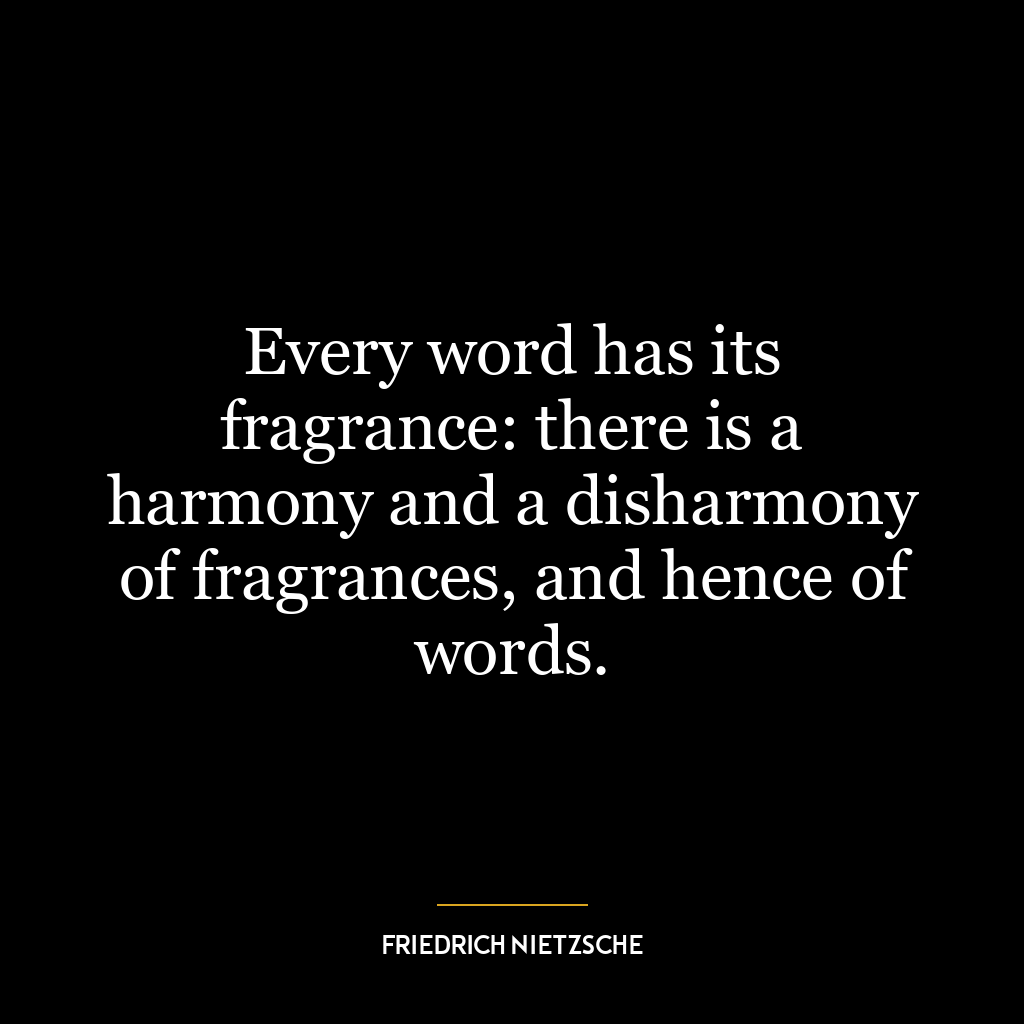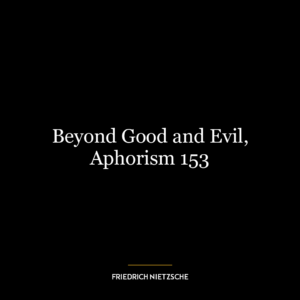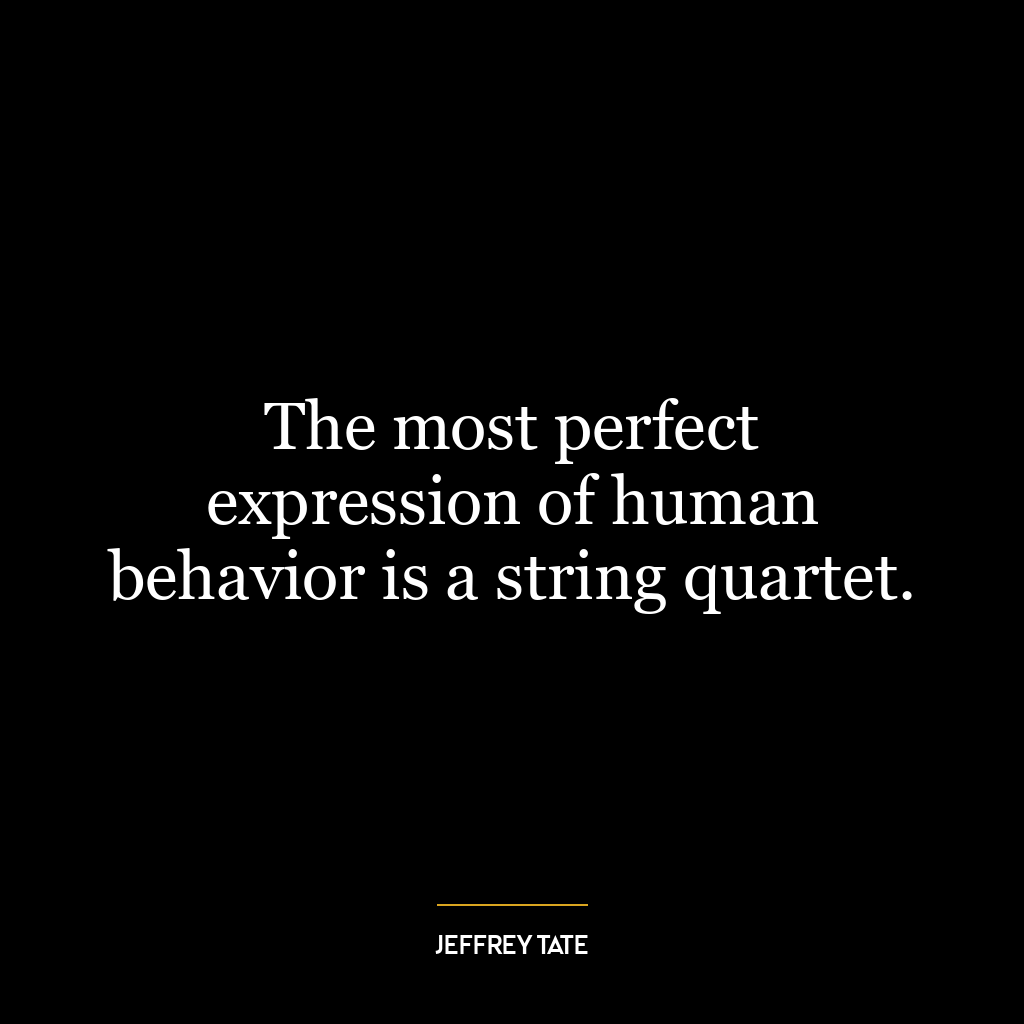This quote, “Every word has its fragrance: there is a harmony and a disharmony of fragrances, and hence of words,” is a metaphorical way of expressing the power and impact of words. Nietzsche is suggesting that words, like fragrances, can evoke different emotions, reactions, and associations. Just as certain scents can bring harmony or disharmony, depending on their combination or context, so can words.
The “fragrance” of a word refers to its essence or impact. It’s not just about the literal meaning of the word, but the emotional resonance, the connotations, and the nuances it carries. Some words can be soothing, pleasant, inviting – these have a harmonious fragrance. Other words can be harsh, unsettling, or jarring – these have a disharmonious fragrance.
The idea of harmony and disharmony in this context could also refer to how words fit together in sentences, conversations, or texts. Some words naturally flow together, creating a harmonious effect, while others clash or create tension, leading to disharmony.
In today’s world, this concept is particularly relevant in the realm of communication and interpersonal relations. In a time where digital communication is prevalent, the choice of words can make a significant difference in how a message is received. The “fragrance” of our words can either build bridges or create divisions. This is evident in political discourse, social media interactions, and even personal conversations.
In terms of personal development, understanding the “fragrance” of words can help in improving communication skills, emotional intelligence, and empathy. By being mindful of the words we use, we can strive to create more harmony in our interactions and relationships. It encourages us to choose our words carefully, to consider their impact on others, and to strive for a positive and constructive communication style. It’s a reminder that words have power, and with that power comes responsibility.














![[Religion is] the attempt to be in harmony with an unseen order of things.](https://quotes.guide/wp-content/uploads/william-james/william-james-710796.png)
